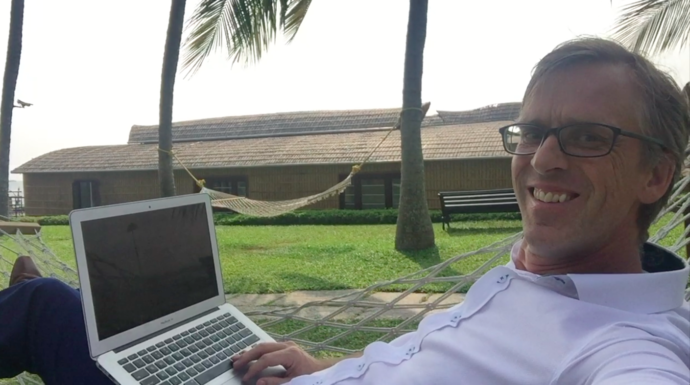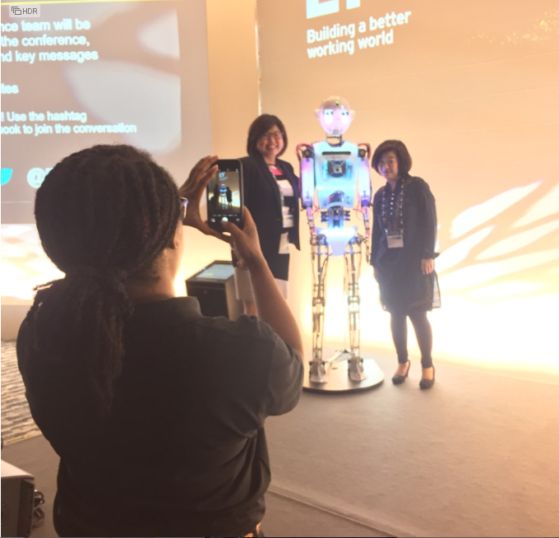
Here is an analogy that I came up with today: Speaking is like surfing and the audience is the wave.
Let me explain what I mean:
Get ahead of the audience and you crash. (Just like a surfer will crash if he or she gets ahead of the wave.)
Get behind the audience and they get bored and move on, leaving you dead in the water (Just like a surfer will be left behind if the wave moves on without him or her.)
But ride the audience just perfectly and the energy that is in this big group of people will propel you forward and give you the ride you are looking for. (Just like how a great surfer will ride a wave.)
It also means that just as a surfer need to become one with a wave, we as speakers need to become one with our audience.
Today I caught a great wave.
I did a speech for the global marketing team of Tata Communications who had gathered for a conference in beautiful Kerala, India.

Before my speech my client had warned me about how the speaker that they had had the day before had not been able to connect with the audience and how that had resulted in a bad session with a disconnected group of people not listening to the speaker.
Hearing that the previous speaker had had a tough time might not be what you would like to hear just before you go up to give a speech, but for me it worked as positive fuel. It reminded me of the need to connect with the audience and ride through the speech together with them.
So what did I do?
I focused on really feeling the energy of the room, listened in on the mood of the group and pushed the audience just so far as they would let me.
And just like how a surfer needs to paddle fast in the beginning to catch the wave a speaker needs to build up just enough momentum in the beginning of the speech to get just a little bit ahead of the audience – but not too much – so that the audience will want to carry the speaker forward.
It worked.
The feedback from the client afterwards was : “I think this is the first time ever we have had a standing ovation at one of our conferences. (Fredrik is) scary likeable, and it was an amazing session.”
I am happy the client was happy – but a great speech is really a cooperation between the speaker and the audience.
They might have thought that it was an “amazing session” – but I also thought it was “an amazing audience”.
I am surprised when I read advice to novice speakers telling them to “pretend that the audience is naked” or “pick on person in the audience who looks like she likes you and speak to her.”. To be advice like that is making the speaker pretend that the audience is something it is not. I think that is terrible advice.
Instead I think speakers should try to get as much feel as possible about how the audience is really feeling, how it is reacting to the speakers message, how they are processing what you say. In other words: “dance” together.
Here is an observation: “A speech will never be greater than its audience.”
The audience is playing an important role in building the experience that a speech will deliver.
When you realise that as a speaker you get better at feeling the energy. And you get a deep respect for the massive power and influence that an audience has on a speech. Just like a surfer will have big respect for the power of the wave.


